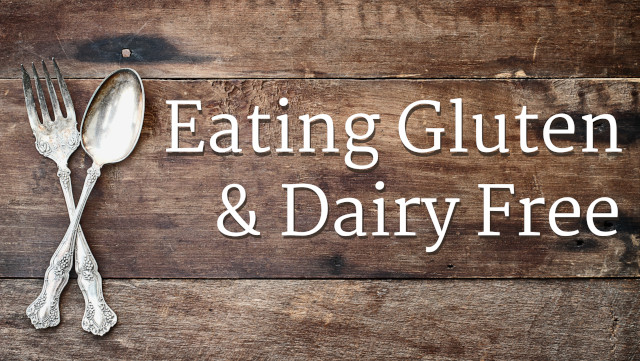Today we are discussing whether or not sesame is gluten free and if it is safe for you to have if you have celiac's disease or are following a gluten free diet. Keep reading to learn everything you need to know.
Following a gluten-free diet for things like celiac disease can often be tricky. Especially when you are seeking out gluten-free options when you have a gluten intolerance.
There is nothing worse than heading somewhere fancy like Japanese restaurants or heading to any other food establishment and finding yourself questioning if you can enjoy all of the lovely-looking foods on offer.
When it comes to finding ingredients that are gluten-free you can sometimes be very wary of some of the more exotic dishes on offer that may come from Asia and beyond, especially when there are noticeable ingredients used like sesame seeds, which are used frequently in Asian-style cooking or gluten-containing foods.
However, you might be faced with the question as to whether or not sesame is actually gluten Free. So we want to cover everything you might want to know about sesame, whether you can eat it, and what sort of substitutes you can use if your version of sesame or sesame seeds happens to contain gluten.
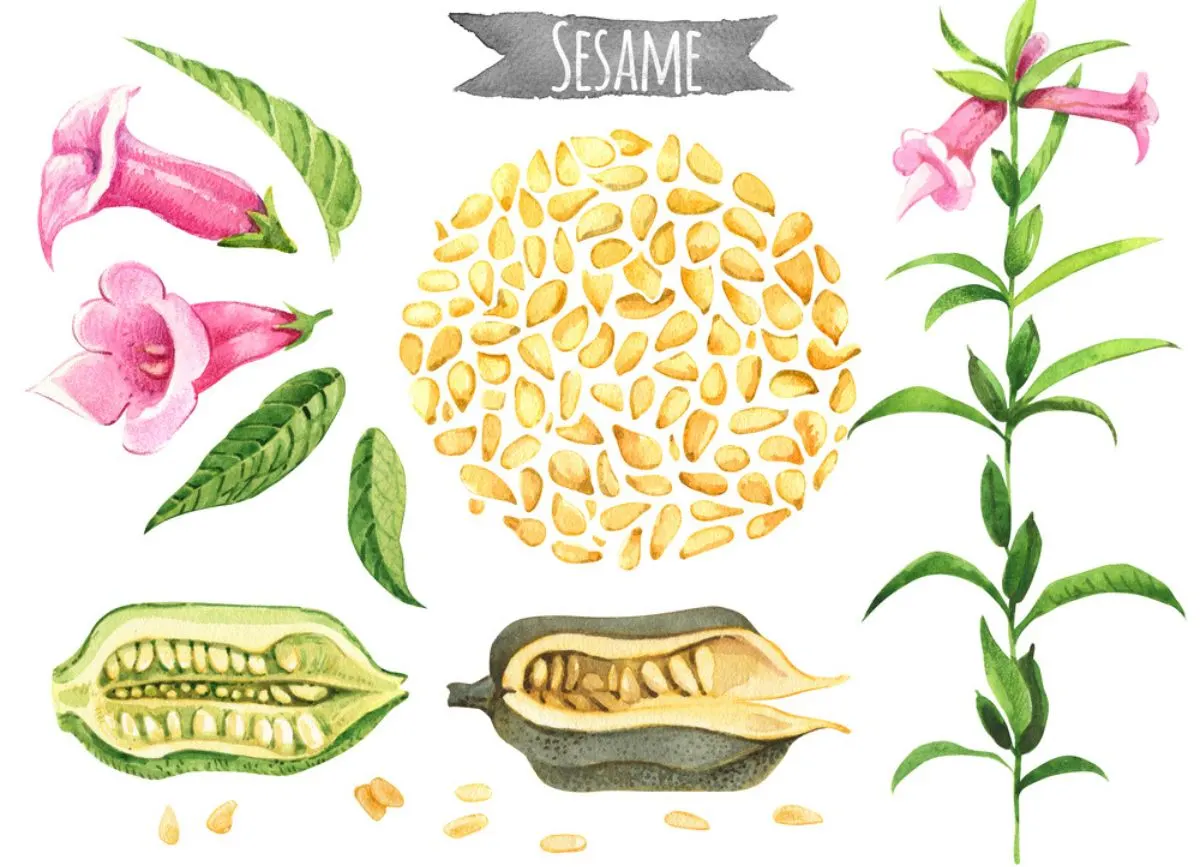
Is sesame gluten free?
Sesame and sesame seeds are used fairly frequently in Asian cooking and recipes, and as well as having distinct flavors they also are high in nutrients and healthy fats. However, the main question you might be asking is whether or not sesame and sesame oil are gluten-free.
The answer is yes, mostly. As it stands, in its natural raw state, sesame and sesame seeds are produced from the sesame plant. It is a gluten-free ingredient.
However, the thing you do have to think about is whether your choice of brand of sesame or sesame seeds is produced in a factory where other ingredients may be handled. This is where cross-contamination might occur and cause the product to not be gluten-free where there can be trace amounts of gluten.
Checking the labels when you are shopping in your local grocery store and researching brands can help you avoid this issue.
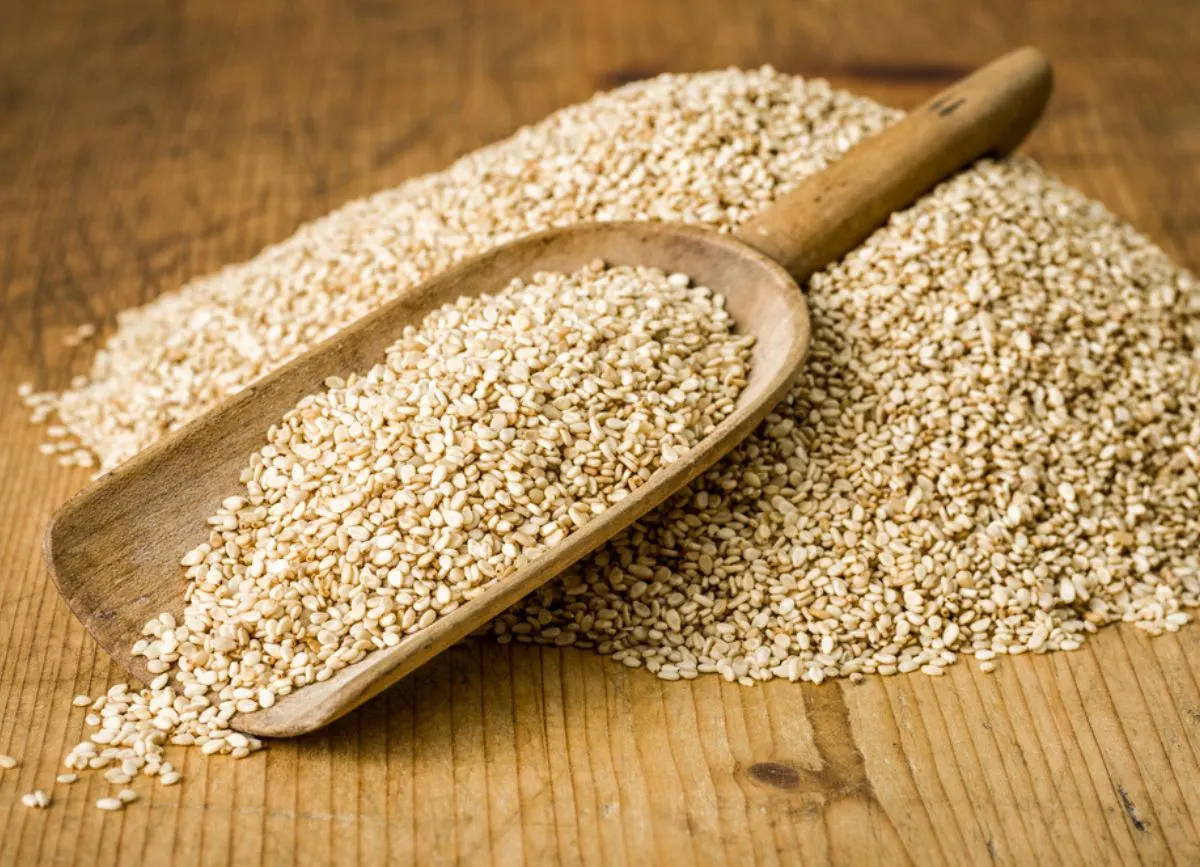
What is sesame?
Sesame is a flowering plant in the genus Sesamum, also called benne. Numerous wild relatives occur in Africa and a smaller number in India. It is widely naturalized in tropical regions around the world and is cultivated for its edible seeds, which grow in pods.
You can get sesame and the sesame flavor through sesame seeds and also sesame oils. Both of these add a depth of flavor but are ingredients often used at different stages of cooking or in recipes.
Sesame oil and sesame seeds are both condiments. The oil is often used at the start of cooking whereas sesame seeds can often be found on burger buns or sprinkled across Asian dishes like sushi rolls, sushi rice, spring rolls, and rice dishes.
They are also used in sweet dishes in South Asian, Caribbean, Middle Eastern, and Mediterranean cuisines. You will also find that you can do different things with the tiny seeds such as toasting them or using toasted sesame oil in different recipes.
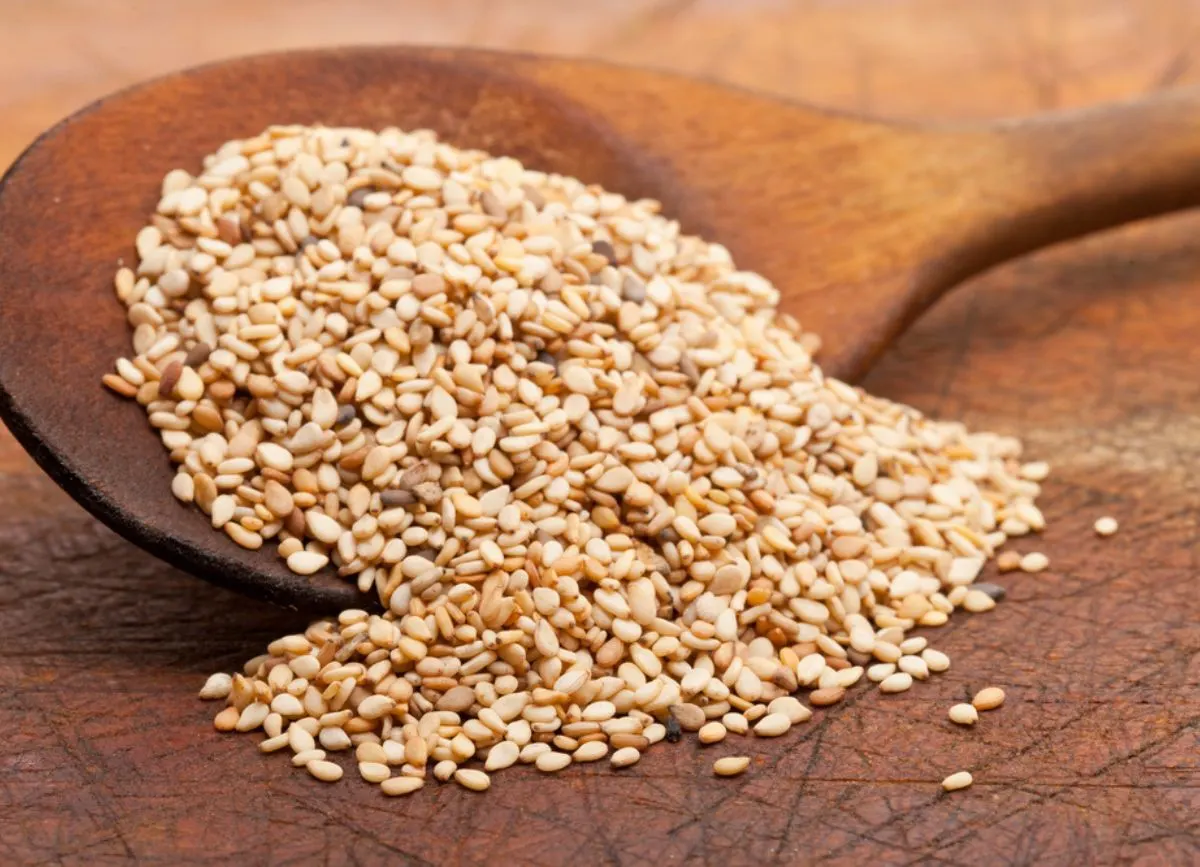
What is a sesame seed?
Sesame seed is the seed of the sesame plant known as Sesamum indicum. The plant is an annual herb with foxglove-like flowers that produce pods containing edible sesame seeds.
The pods burst open with a pop when the seeds are mature. The hulls are removed as they contain oxalic acid. Unhulled sesame seeds are bitter.
The seeds can also be pressed for sesame oil which is also a common ingredient to use. Besides being used as a condiment, in Asia, the toasted seeds are used to make sesame paste, which is often used as a peanut butter substitute.
In Middle Eastern and Asian cuisine, the untoasted seeds are used to make your own tahini paste.
When is sesame used?
You will find that gluten-free sesame seeds and ground sesame seeds as well as roasted sesame oil and sesame oil generally can be used in many different ways. When using sesame oil you will find that you use less oil which has health benefits.
Sesame seed oil and organic sesame seeds can be used in lots of different recipes, the oil is usually at the start of a recipe, and the sesame seeds are at the end. You can use seeds to make sesame tahini which is full of flavor.
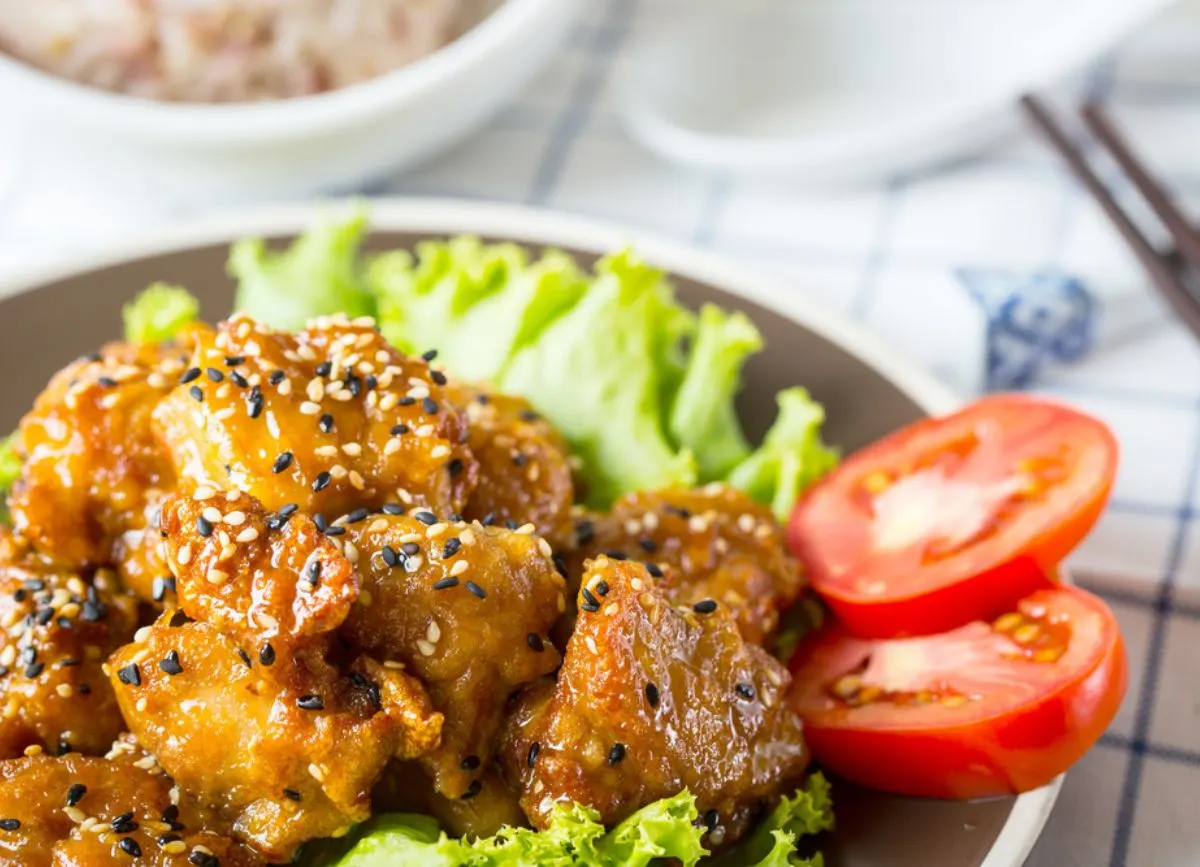
Is sesame healthy?
Sesame seeds are great for you and have been used for thousands of years not just in cooking but also for medicine.
Sesame seeds provide benefits such as lowering cholesterol and triglycerides which are risk factors for heart disease, lowering blood pressure, supporting healthy bones, aiding blood cell formation, helping blood sugar control, supporting the immune system, soothing arthritic knee pain, supporting thyroid health, and aid hormone balance during menopause.
They are also natural anti-inflammatories.
Sesame seeds have many of our daily values and are high in fiber, plant protein, and a great source of B vitamins. Of course, you’d need to eat this nutritious food in greater portions to receive the vast amount of benefits it provides the body.
Just be cautious as they are high in calories and fat.
Is sesame vegan?
A vegan and plant-based diet has grown in popularity in recent years. So much so, that there is a larger range of products on the market that make appetizing and delicious substitutes for animal products.
Protein is a massive part of any healthy balanced diet but the myth that this can be gained from just animal products is starting to diminish, and ingredients like sesame and sesame seeds are a huge source of protein.
Sesame and sesame seeds are in fact vegan and are an essential part of a balanced diet. You will find that sesame seeds are higher in nutrients and healthy fats and are a great alternative to the more popular chia and flaxseed, often used in vegan cookery.
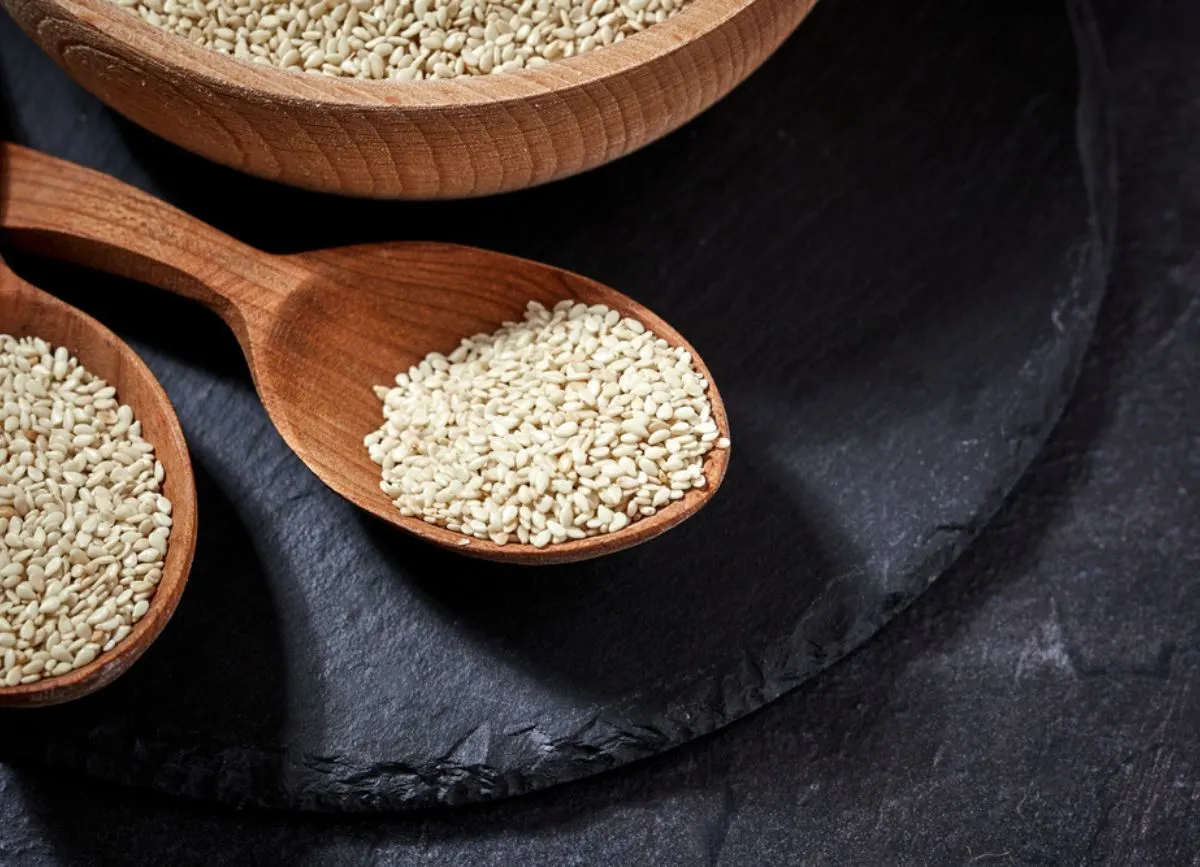
Sesame Substitute
A great substitute for sesame is sunflower seeds. They are perhaps one of the more readily available alternatives and substitutions that you can use in cooking and although have a different flavor and texture they work just as well in baking, bread, desserts, and different pastries.
You can also use sunflower oil as a substitution for sesame oil which can be great when cooking.
You might also like to try other substitute options for sesame and sesame seeds such as poppy seeds which are a great alternative to black sesame seeds. Hemp seeds, flax seeds, pumpkin seeds, and chia seeds are also great options and are naturally gluten-free.
Nuts are also a great option when looking for substitutes for sesame and sesame seeds and roasted almonds and pine nuts, albeit it has a different flavor and texture, and could work well with your recipes. Almond flour can also be a great alternative.
We hope this has made you more at ease as to whether sesame is gluten-free or not.
